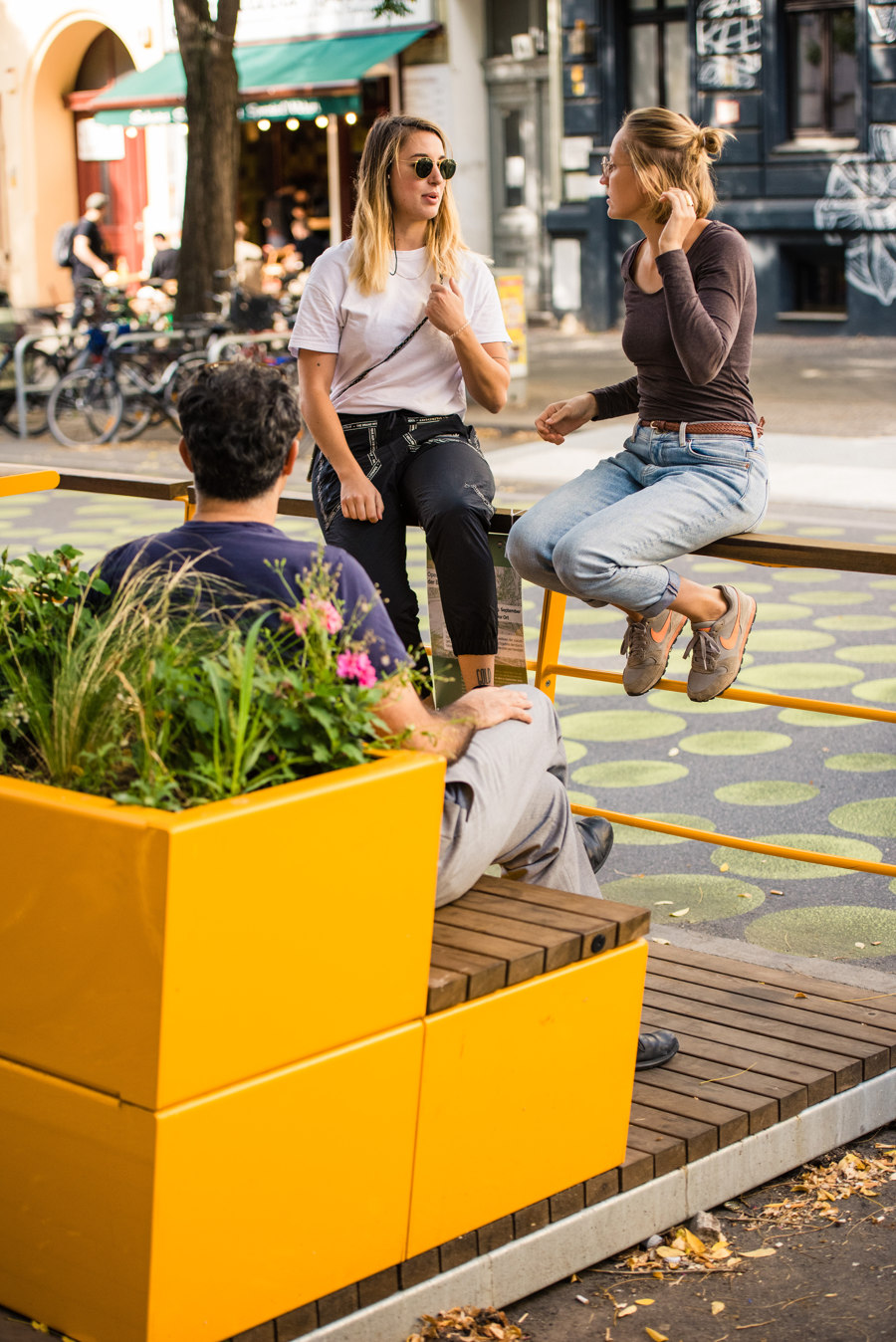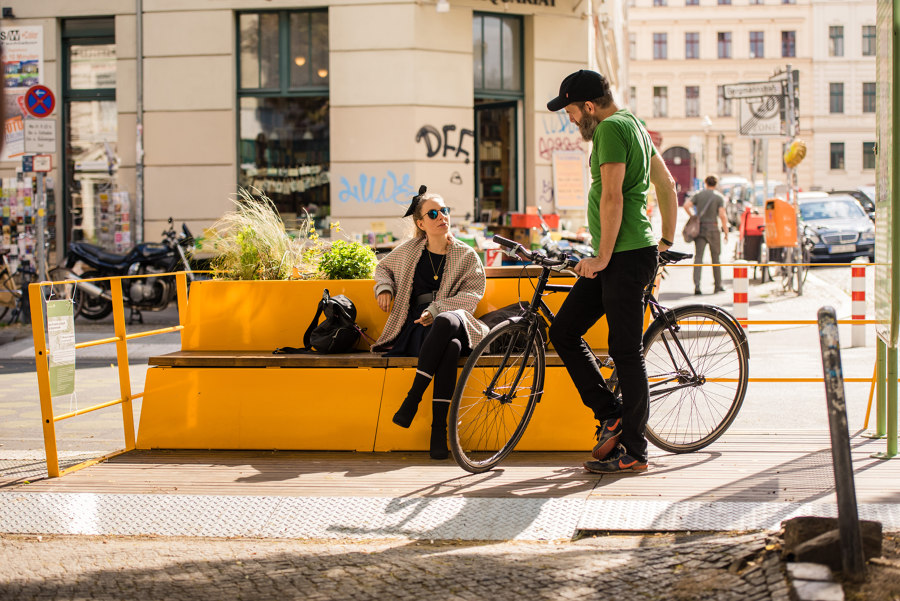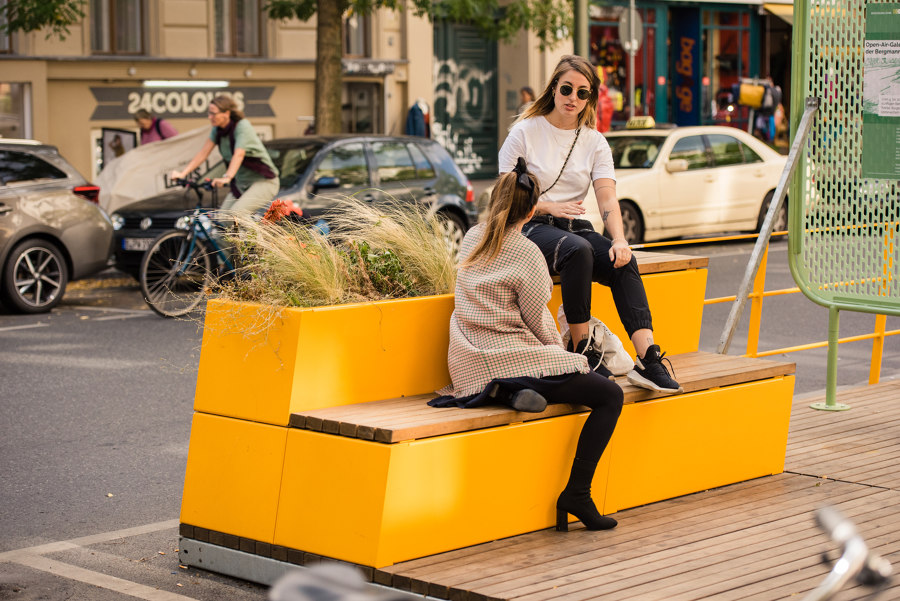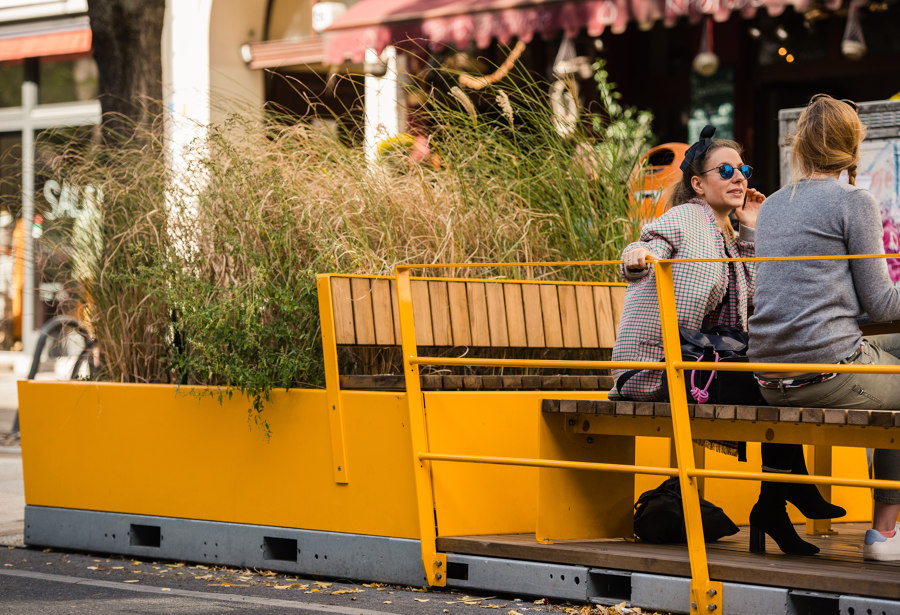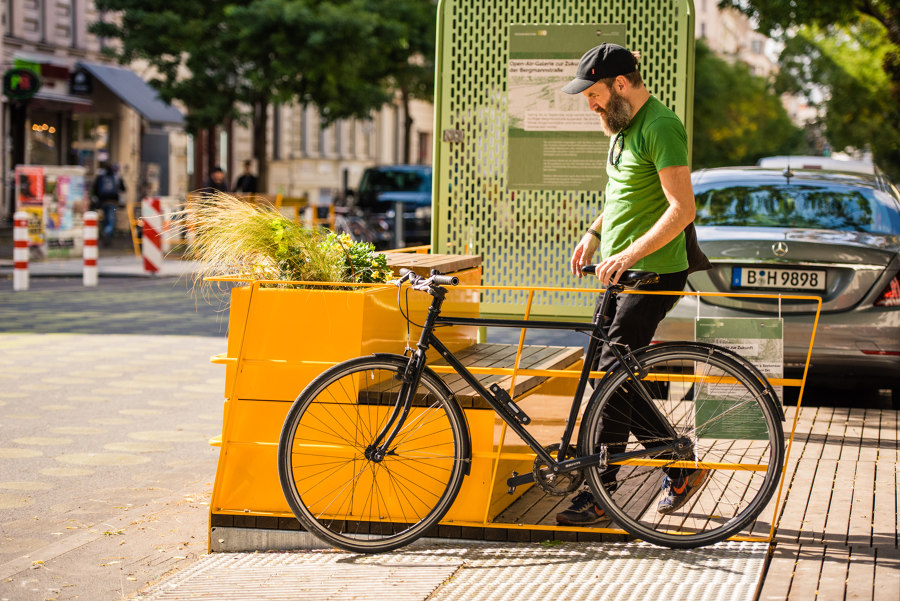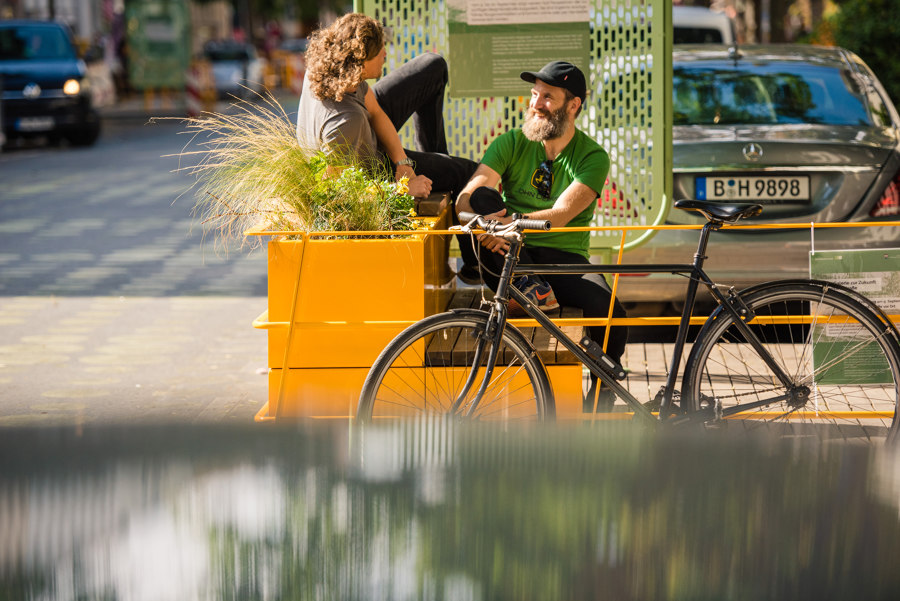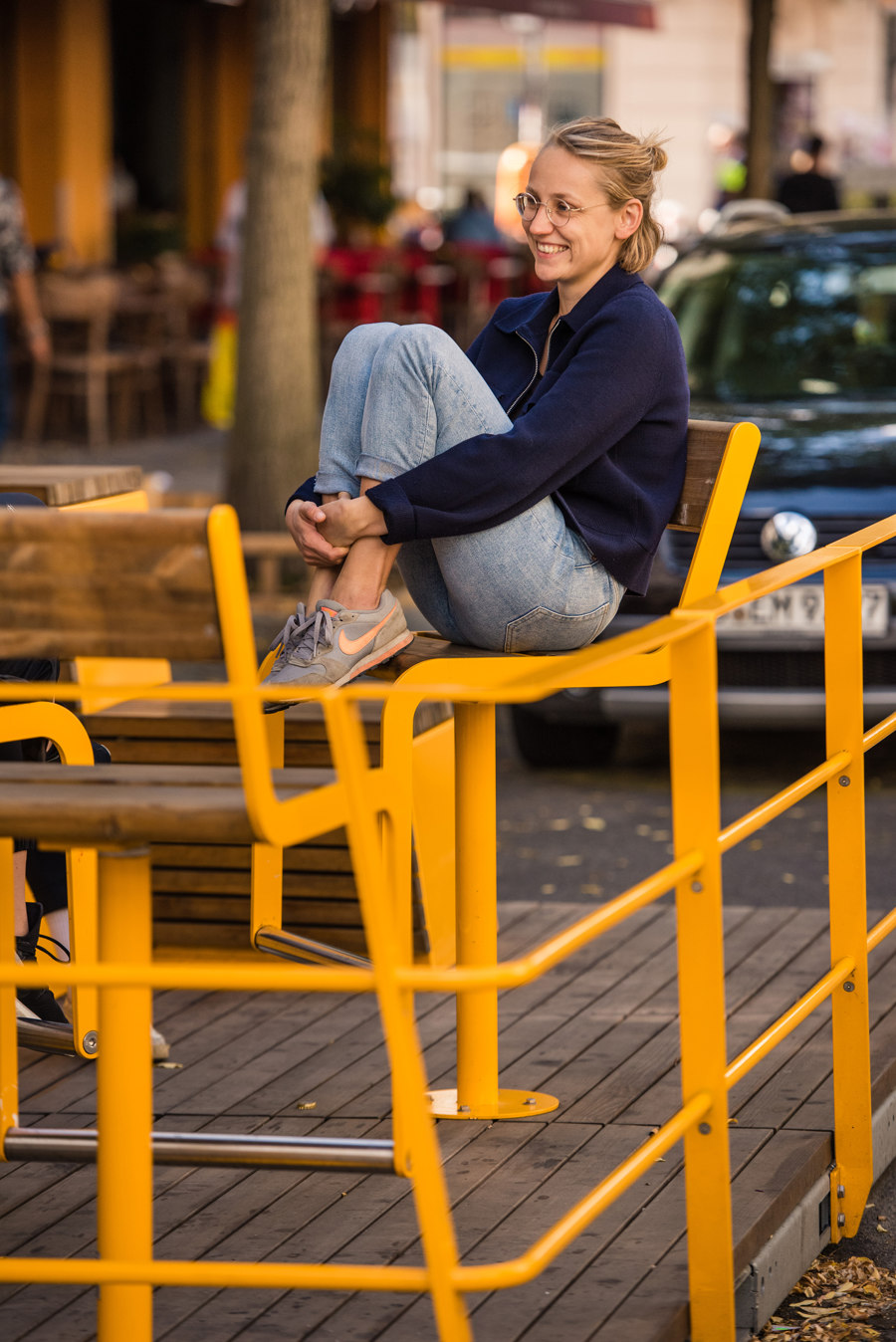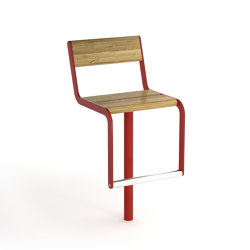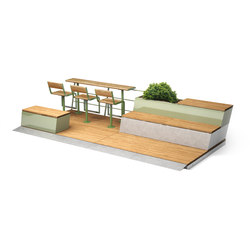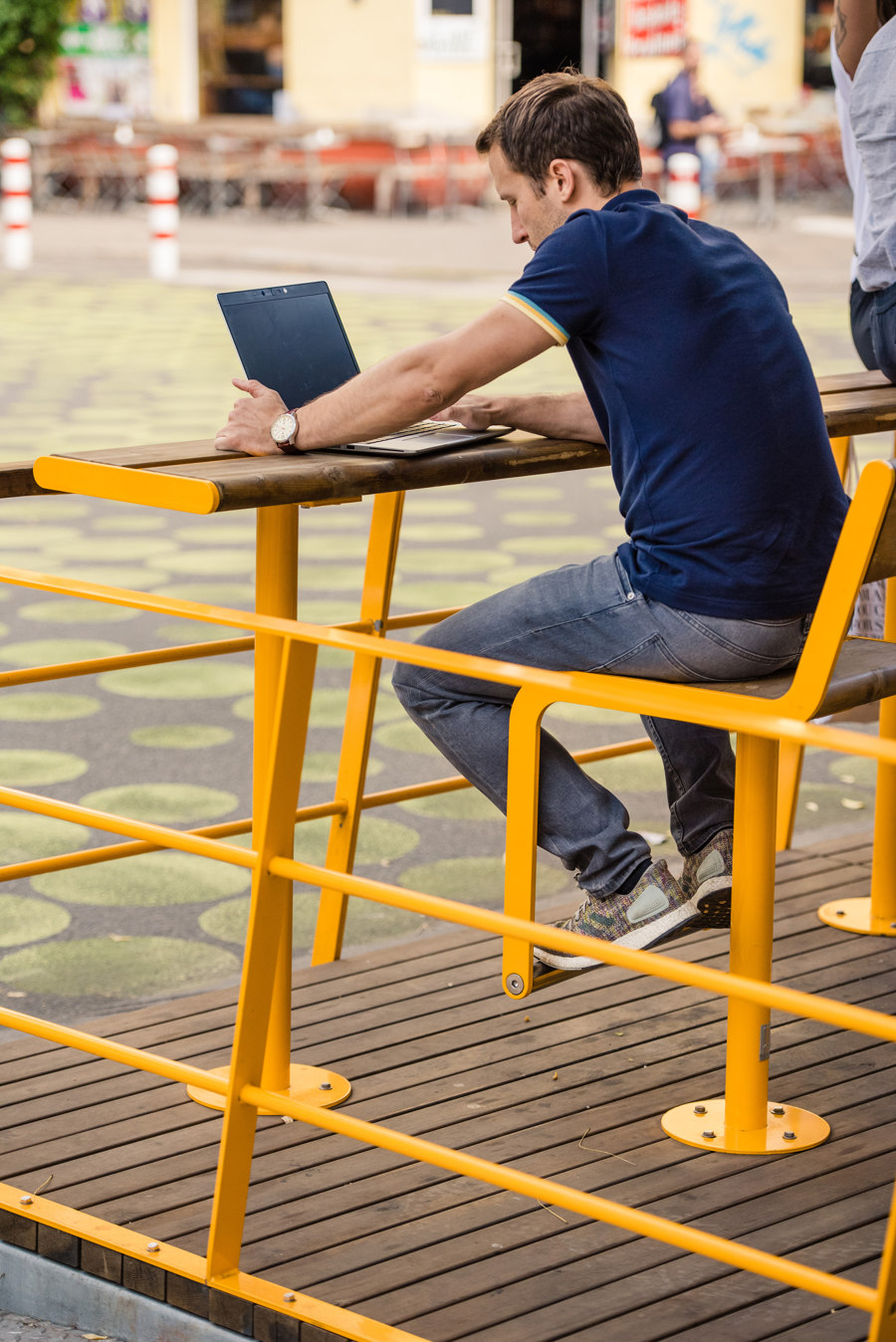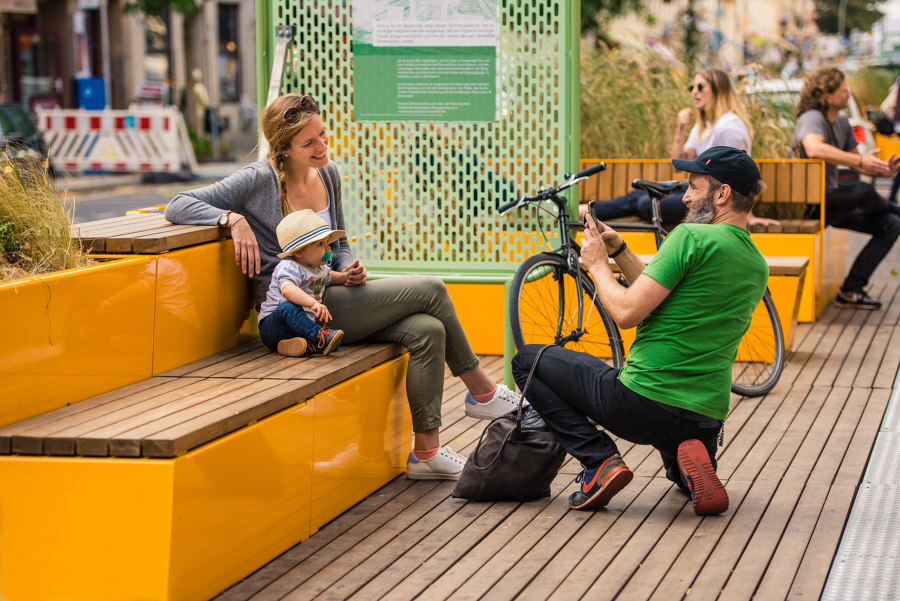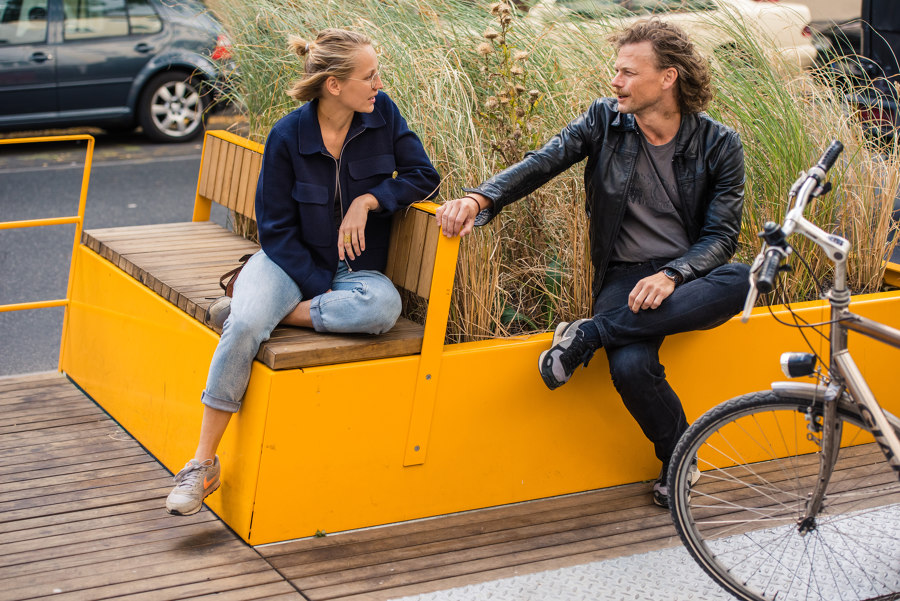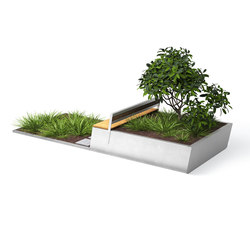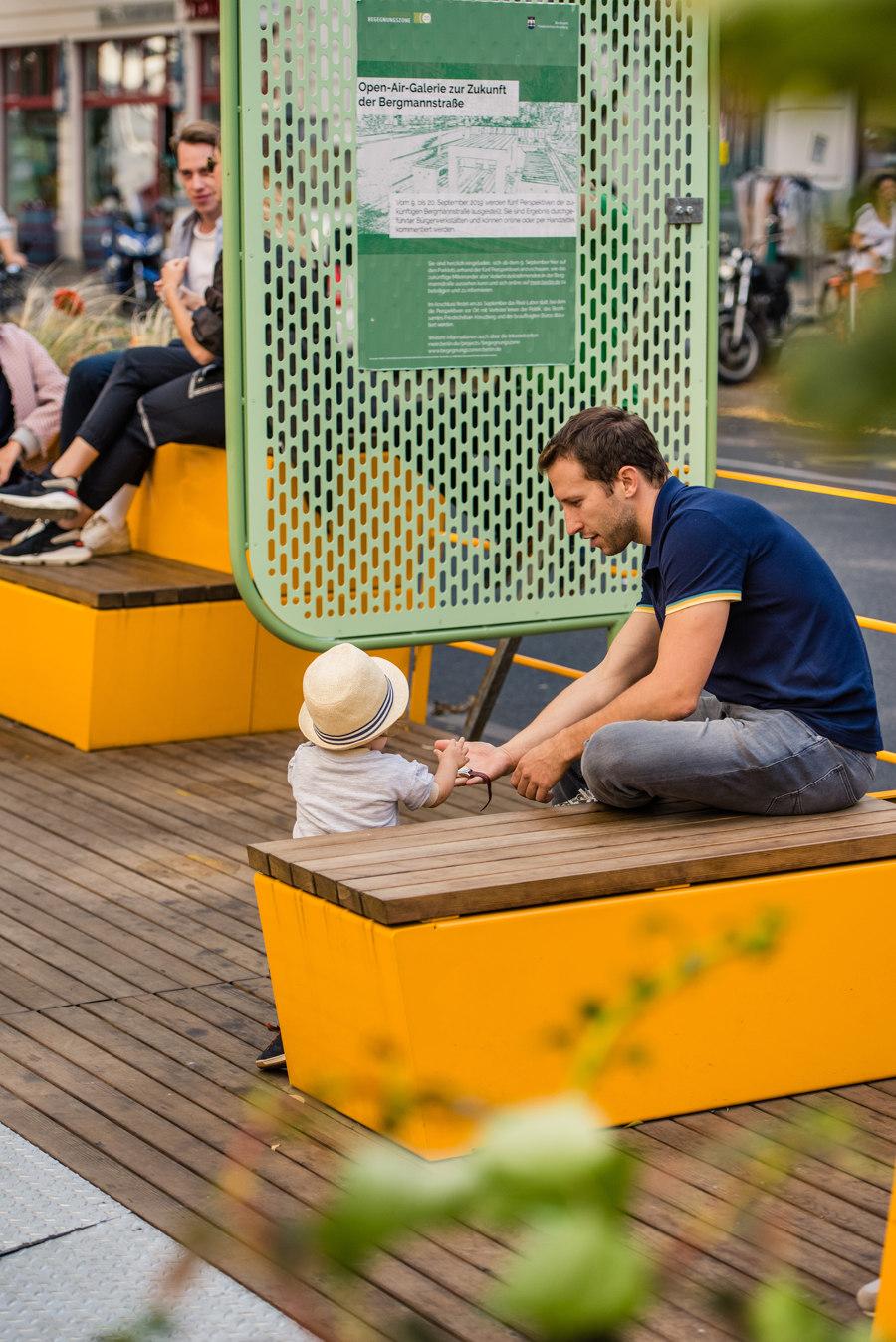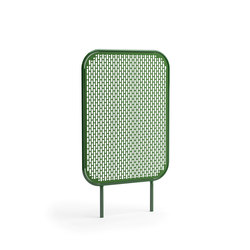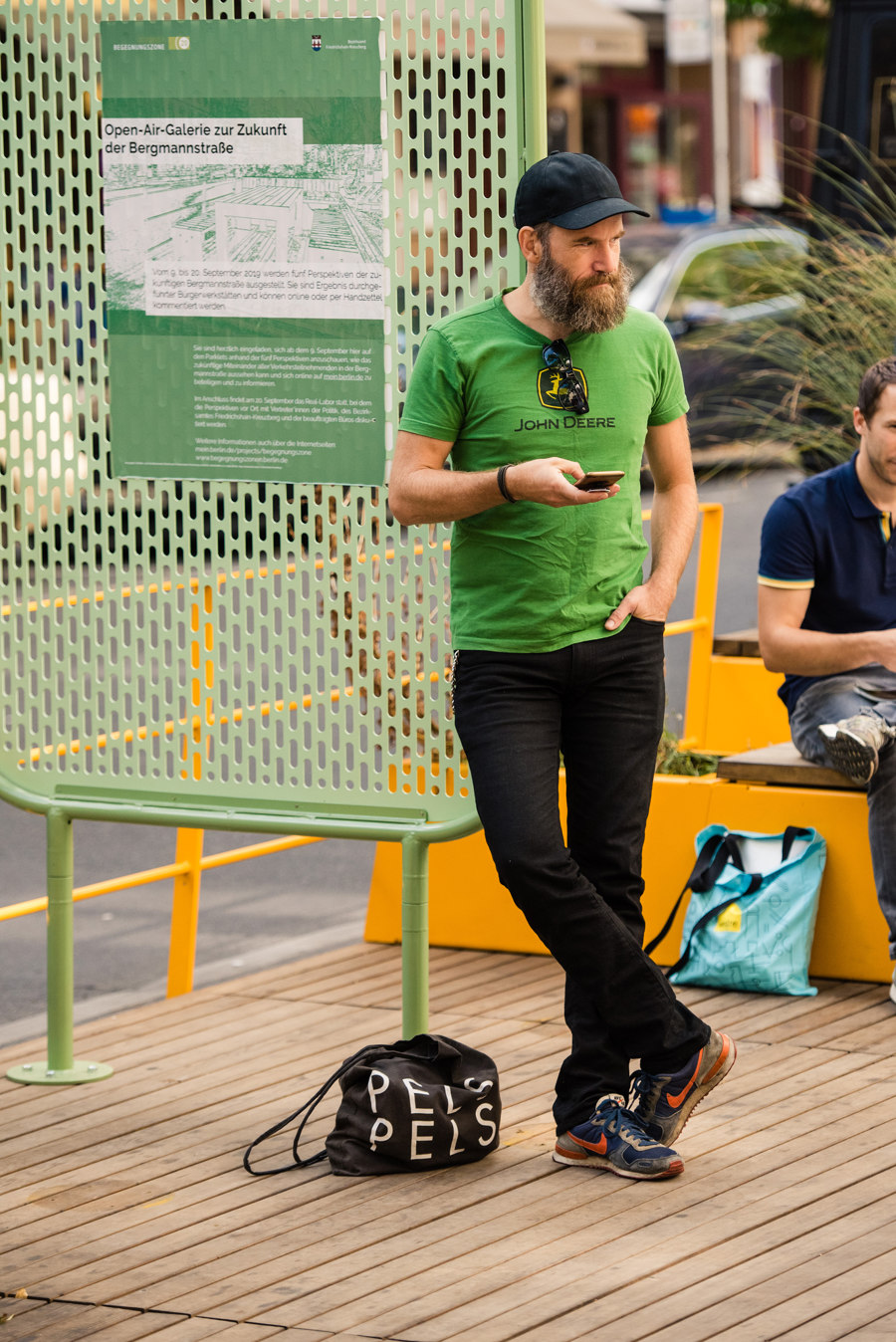Together with Vestre, Studio Oslo Landskapsarkitekter (SOLA) has developed a robust modular Parklets system that can be combined and adapted to suit urban needs. The project is an important contribution to ‘Bilfritt Byliv’, Oslo’s car-free city life project, in which cars are being phased out of the city centre by 2020. Oslo has invested in temporary installations, with Parklets playing a leading role. For the municipality, it is important for Parklets to be accessible, and also robust enough to withstand climatic and local conditions. Parklets are acting as a pilot project in the transition between today’s Oslo and the car-free city of the future, as well as facilitating the dialogue between the community and the municipality before the council commits to permanent changes in the streetscape. The consept:
Parklets are temporary installations that extend the pavement and replace parking spaces with city life. They contribute to a greener and livelier city, with increased street planting and new functions, as well as improving safety for pedestrians and cyclists. By creating new, social meeting places, Parklets help to inspire a new kind of city life. They have also been shown to have a positive economic impact on local commerce. The design - customizable configuration:
Parklets 2.0 have a versatile frame (base module) with adjustable supports for ensuring accessibility and optional protection from traffic. Different floor modules extend out and activate the pavement, while a wide range of new furnishing elements can be combined to create individual ‘module personalities’. SOLA has developed customisable configurations for a number of ‘module personalities’ that fulfil important urban functions, such as outdoor dining, transport, planting, gathering and activity. Through standardisation, Parklets 2.0 simplify the design, planning and production process by offering ready-made solutions.
Landscape architect:
SOLA

